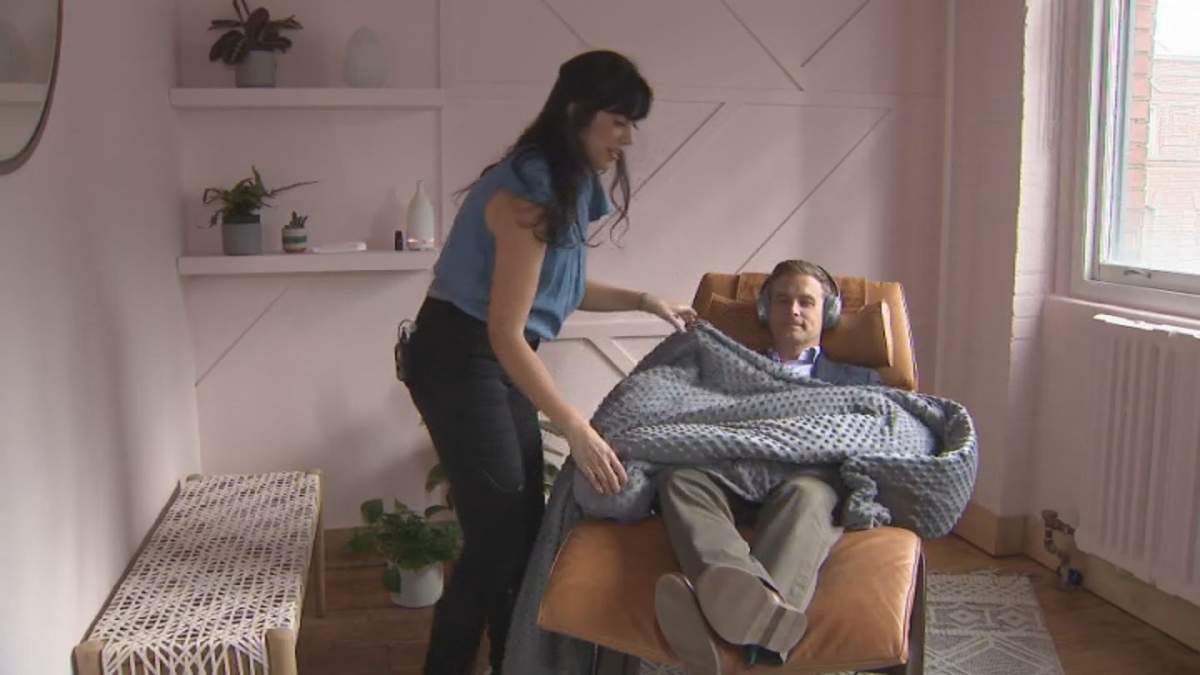Field Trip’s timing was admittedly terrible.

What’s been billed as the “first psychedelic-enhanced psychotherapy centre in Canada” opened the week before most of the country went into COVID-19 isolation. So before it could open any minds to its potential, its doors were closed.
Three months later, it’s finally open to the public.
“The need exists because there are so many people struggling with depression and anxiety and other mental health conditions,” says Field Trip Executive Director Ronan Levy.
The company’s first location is based in downtown Toronto. Two new locations in Los Angeles and New York will open later this summer. The office looks more like an upscale yoga studio than a doctor’s office. Spacious rooms and comfortable chairs are meant to put patients at ease as they undergo a treatment that mixes a microdose of ketamine with psychotherapy.
The idea, says Field Trip medical director Dr. Michael Verbora, is to get away from our reliance on anti-depressants.
“Traditional medicine is passive,” he says. “’You take this pill, this pill is going to fix you’. This is ‘we’re gonna give you a drug and we’re gonna help open up an opportunity for you to be your own healer,’ and we’re gonna be here for whatever you may need.”
A typical session that includes ketamine and therapy lasts around two hours. The patient would receive a microdose of ketamine through a needle in the arm or leg before relaxing in a reclining armchair with noise-cancelling headphones. After about 45 minutes the drug wears off and the therapy starts. Each session costs between $200 and $400.

Canadians are among the highest consumers of anti-depressants in the world (86 dosages per 1,000 people), trailing only the US (110 dosages), Iceland (106) and Australia (89) according to the OECD.

Get weekly health news
Most psychedelics are banned in Canada, including psilocybin and MDMA which are more commonly known as magic mushrooms and ecstasy. The drug used at Field Trip, ketamine, is legal for medical use and most commonly used as an anesthetic during surgeries. Its street name is Special K.
In the 1950s Canadian researchers in Saskatchewan were considered world leaders in the research of psychedelics to treat a variety of diseases, including depression and alcoholism. But LSD pioneer Timothy Leary helped usher in the counter culture movement of the ’60s, and psychedelics became synonymous with hippies. As a result, the U.S. and Canada banned them in the 1970s, essentially putting an end to any research projects.
In recent years scientists have begun looking for alternatives to anti-depressants, which a study from McMaster University suggests are hard to kick because of extreme withdrawal symptoms. Just last year, researchers at the University of Toronto launched the Centre of Psychedelic Studies where they’re looking at the effects of psilocybin. And researchers at the University of British Columbia Okanagan are well into a study looking at the impact of MDMA on patients with PTSD.
And while promising, U of T psychology professor Dr. Norman Farb cautions it’s still early days.
“We have almost no long term research,” he says. “So just because you feel incredible — right after a trip or even a week after a trip — doesn’t tell us anything about what’s going to happen to you in six months, a year or longer.”
Ketamine became known as a “club drug” in the 1990s. According to CAMH, when taken in high doses users report an out-of-body or near-death experience. It can also become addictive because higher doses are needed to counter increased tolerance. Smaller microdoses can give users a sense of floating, dissociation and numbness in the body.
During the worst days of the pandemic Field Trip offered virtual sessions to its clients, which have to be referred by a family doctor. The clinic has also provided free, remote therapy services to first responders and health-care workers. They’re now open for patients to visit them in the clinic.












Comments
Want to discuss? Please read our Commenting Policy first.